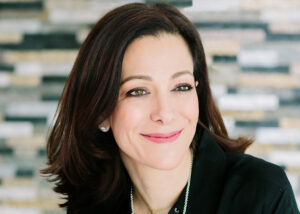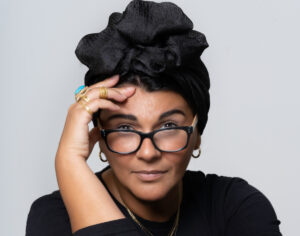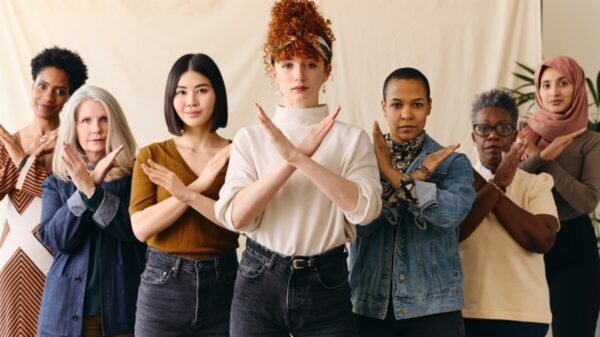This International Women’s Day, ME RetailNews profiles 10 inspirational women making an impact in Middle East retail.
These women are neither ranked nor picked based on any set criteria, but are all formidable women driving the region’s retail sector, through leadership roles in corporate organisations and as entrepreneurs.
Mona Ataya, CEO, Mumzworld

Mona Ataya is co-founder and CEO of Mumzworld, the Middle East’s biggest online retailer of all things ‘mother, baby and child’.
Her initiative for launching the online retailer came from her own experience as a mother to three, while juggling her role as co-founder and an executive of Bayt.com, a leading job site in the region.
Ms Ataya struggled to find high-quality, well-priced products for her children. Information about baby products was also scarce, especially in Arabic.
Mumzworld aims to provide objective, accurate information in Arabic and English about all of the products it sells, so mothers are well informed before making a purchase. It’s also a social platform for mothers to share their stories, a community Ms Ataya felt she lacked as a mother.
“Everything we do is about empowering women and that starts with the customer – the mother, who is empowered to make informed decisions for her children,” Ms Ataya told Harper’s Bazaar Arabia.
According to Mumzworld, the ‘mother, baby and child market’ in the region is valued at $10 billion, with e-commerce growing at 39 per cent annually, projecting steady growth.
The Tamer Group, Saudi Arabian healthcare and consumer goods conglomerate, recently acquired a majority stake in the company.
Ms Ataya plans to expand Mumzworld into North Africa and the Levant.
Sima Ganwani Ved, co-founder & chairwoman, Apparel

Sima Ganwani Ved is co-founder and chairwoman of the Apparel group, a leading retailer conglomerate in the Middle East.
With her father having his own retail conglomerate, Lal’s Group, that manages Daiso, Homes R Us and Carter’s, Ms Ved experienced the UAE’s retail scene from a very young age. After completing university in London, she returned to the UAE and joined her father’s business alongside her brother, where she began to learn the nuances of retail.
On the advice of her father, she soon started her own retail business to avoid potential sibling rivalry.
“At the time, this felt unjust and sexist; however, today I am grateful that he put me through this journey which taught me how to survive and thrive,” Ms Ved told Authority Magazine.
Ved sold the gold she and her husband received as wedding gifts and used the amassed $12,000 to start the Apparel group.
The multi-billion-dollar conglomerate houses more than 75 brands in 1,850 stores across 14 countries. According to Rocket Reach, its average yearly revenue amounts to $218 million.
Of global gender inequality, Ved said, “We need to acknowledge that gender inequality is not a women’s issue, but a human issue.”
Ved strives to be an example for women in her company and urges them to pursue business ventures themselves.
“Leading by example is the most critical way to exemplify what we stand for. Within my company, we encourage an entrepreneurial mindset.
“Being the top female leader within the company, I constantly share my journey with peers and let them use me as a sounding board for ideas they may have. For now, I am working on increasing the female diversity in our senior leadership team, which will hopefully instil confidence in them to start their own company.”
Yasmine Khamis, non-executive chairwoman, Oriental Weavers

Yasmine Khamis is non-executive chairwoman of Oriental Weavers, an Egyptian-based rug manufacturer and retailer with a global presence. Its three production facilities in the United States, Egypt and China serve more than 150 countries worldwide.
Ms Khamis’s father founded the company in 1979 and handed over operations to her and her sister in 1999. From factory workers to executives, the industry doubted the sisters.
Ms Khamis initially joined as product development manager. Today, she is credited with the company’s increased sales, entry into new markets and market share growth.
In the fiscal year ending December 31, 2021, Oriental Weavers’ revenues hit $726 million, with a net profit of $65 million, reported financial website Investing.
Ms Khamis values her achievements on a human level, rather than a career accomplishment: “Beyond our success, I am proud of the additional support and growth opportunities we provide our employees and their families beyond the walls of our factories,” she told Home Furnishing News.
Ms Khamis is also co-founder of The Doodle Factory, a brand that uses children’s artwork to design pencil cases, handbags and placemats. Proceeds from sales go back to the children or fund medical, educational and sheltering needs in Egyptian communities.
Ms Khamis said the company “brings beauty back to the community”, Arab News reported.
Her aim with The Doodle Factory is to “create a brand and an organisation that really helps the children it promises to help. Our purpose is to create designs and products using children’s creativity and playfulness to pay for a better life for them”.
“When a child draws and then gets clean water in their house in a rural area, they are not just helping themselves, they are helping their family and the community. The impact is huge for them,” she said.
The brand sells over 20,000 products yearly in Egypt, empowering Egyptian children and communities.
Sophie Doireau, CEO, Cartier Middle East, Africa and India

Appointed last year, Sophie Doireau is the first female CEO of Cartier for Middle East, Africa and India
In her short time as CEO, Ms Doireau has expanded Cartier’s operations in Turkey and launched its e-commerce platforms in the UAE and Saudi Arabia.
The company’s UAE operations were recently certified as having achieved equal pay for equal work across genders.
Sixty per cent of Ms Doireau’s division are women.
She said women are increasingly buying jewellery for themselves and, in doing so, finding a sense of achievement.
“I am proud I can offer myself a creation,” she told Mojeh.
Cartier partnered with Dubai’s Expo 2020 to create its Women’s Pavilion, advocating for gender equality by highlighting women’s contributions to society.
“This is the most beautiful open forum we could have for such a cause,” she told Harper’s Bazaar Arabia.
“I hope one day we won’t need a women’s pavilion. But we need to act now, all together, both men and women. Ultimately, we do need men to be our allies.”
She also spoke of the gender equality in the region, saying: “The progress that the UAE has made in terms of women’s empowerment is really impressive. It’s so great to have these huge responsibilities that we’ve been given by a country and by Cartier, I’m so proud to be part of it.”
Ms Doireau believes that education is key to minimising the gender gap and inequality.
“Education. The solution to women’s empowerment starts with education. I think if all women had access to it, it would completely change the world. This, for me, is the starting point of the solution,” she said.
Ingie Chalhoub, founder and president, Etoile Group

Ingie Chalhoub is founder and president of luxury retailer Etoile Group.
With a mother who dressed in head-to-toe couture, Ms Chalhoub was immersed in fashion from a young age.
Along with her mother, Ms Chalhoub opened Kuwait’s first Chanel boutique in 1983. With time, the duo began to acquire more luxury brands.
However, the store was victim to the Gulf War that began shortly after.
“A lot of our merchandise was stolen. We had to start all over again,” Ms Chalhoub told The CEO Magazine.
Not to be discouraged, Ms Chalhoub looked to Dubai’s Jebel Ali Free Zone and built Etoile Group, the sister company of her husband’s Chalhoub Group.
Today, the Etoile Group is home to numerous luxury brands including Chanel, Ralph Lauren and Valentino.
In 2009, Ms Chalhoub combined her love for design and her accumulated business knowledge to launch her eponymous fashion brand, INGIE Paris, a luxury womenswear label whose design ethos centres on powerful femininity.
She outlines how being a female executive grants her great exposure to the design process.
“Today, being a woman designer is even more interesting. To know what women are expecting, being close to the creative side and working closely with the atelier enriches and empowers me.
“I get the A-Z experience of this industry, it’s very fulfilling. You have to be the face of everything and also doing everything. You have to master all aspects of the business.
“I learned to become more self-confident and even as a woman, it was not always easy. You don’t see so many women at the top level,” Ms Chalhoub told Emirates Woman.
Besides her business ventures, Ms Chalhoub invests in children’s wellbeing, from participating in ‘Make A Wish’ campaigns by having children at her fashion shows to visiting refugee camps in Jordan.
She highlights that her obligation to the greater community is top of mind.
“It’s so important to give back to the community. If everyone gives back to one child, we will be living in a better world. For me, it’s something that I’ve always been conscious of.”
Razan Alazzouni, founder, Razan Alazzouni

Razan Alazzouni is a Saudi-based fashion designer who founded her eponymous label after struggling to find curation jobs in the kingdom.
She found her love for design at Tufts University, when a dress from a collection she had created for a competition was worn to a high-scale Miami party.
In 2008, after returning to Saudi Arabia, she decided to turn her hobby into a brand.
However, her entrepreneurial endeavours were met with scepticism as others saw no room in the Saudi market for her. Penetrating the international market was an even greater challenge.
“One of the biggest challenges I faced was being based in Saudi Arabia and breaking into the international market. I felt I had to prove myself more than a European designer might have needed to,” Ms Alazzouni told fashion blog Fustany.
Today, Ms Alazzouni’s creations have been worn by numerous celebrities including Kendall Jenner, Emma Stone and Elizabeth Banks.
Ms Alazzouni described the perfect ‘Razan Alazzouni’ woman as a “sophisticated worldly woman who is confident, and out to achieve her goals in life”.
She draws inspiration from Arab and more specifically, Saudi Arabian.
“The Arab woman needs to focus on representing herself and her personality in her choice of fashion pieces. When her inner beauty and uniqueness shines through, she will be a wonderful sight to behold,” she said.
“The Saudi woman needs to persevere. She needs to work hard against all the odds and nurture the positive energy and support she gets from the positive people around her.”
Sofia Alasfoor, founder of Sofia Alasfoor

Sofia Alasfoor is founder and designer of her Bahraini-based namesake brand, specialising in luxury leather handbags and accessories.
She wanted to introduce Arabian designs to a region that loved luxury products, reported About Her.
“International luxury brands heavily cater to our Middle Eastern world, where women desire luxury brands to wear so why not offer a luxury treasure from Arabia that truly represents our women? I wanted to create and offer a luxury statement piece that exceeds in quality and tells a story,”she said.
Having studied at Milan’s Institute of Design, the London College of Fashion and Parsons in New York City, Ms Alazzouni said her global experiences have made her cultural identity stronger living in the region.
“Living and mixing with different cultures only brings out one’s character, making me a modern Arab woman,” she said.
Alasfoor shared that the mission of her label is to empower women.
“I’ve always wanted my bag to represent the empowerment and the beauty of women with her complexity and distinct nature,” she told blogger Kimiya Joon.
Her signature monogram, the shield, “represents today’s woman of the world who celebrates power and sensuality, and is sealed with a coat of arms representing the beholder’s true heart, mind and soul.”
Asil Attar, founder, SALT

Iraqi Asil Attar has made her mark in the region as the first female to have held CEO positions at three Middle East retail groups: Damas Jewellery, Majid Al Futtaim and Kuwait’s Alyasra.
Her retail journey began as a floor salesperson at Harrods UK, due to her interest in retail. She steadily moved through the ranks to directorial positions at high-profile brands including Karen Millen, Jigsaw and Whistles.
In 2017, she launched an e-commerce platform, SALT – Supporting All Local Talent. Besides retailing its own label brands, SALT scouts global talent. The retailer stocks designers at fashion workshops to market-growing designers, such as Ayesha Ramadan, Hussein Bazzaza and Effa El Dabbagh.
By promoting individual designers, SALT appeals to the market’s growing search for sustainable, clean fashion instead of fast fashion items.
SALT advertises itself as a modest fashion brand targeting Middle Eastern countries, India, Southeast Asia, Europe and potentially the United States. The omnichannel brand integrates e-commerce and pop-up retail shops, tying fashion with technology to sell affordable luxury products.
Ms Attar frequents global retail conferences, promoting female empowerment alongside discussing business strategies.
Of her experiences as a female executive, Attar said: “I’m very proud of my achievements, especially as a female, championing empowerment and representing the potential of women.
“Having said that, I am passionate about empowering men and women as we all serve an example for each other,” she told Out & About magazine.
“The fact that a small single-digit representation of women in senior roles or on the board is a key factor; this, however, should motivate women more. It is up to us to change the mindset that we can’t do it.
“We must see ourselves as capable of achieving anything we set our minds to. Without women driving this mindset, change will not happen. There are thousands of women that will follow, and it’s up to us to unite and empower them to do so,” she said.
Having lived in Iraq, the US, the UK and the Middle East, Ms Attar chooses to reflect her international experiences in her workforce: “I always had a diverse workplace and I have hired people with different ethnicities and cultures. I represented a mini melting pot.
“Promoting diversity in the workplace is an innate part of my leadership style and is definitely natural.”
Minal Siyal, founder, Beauty Binge

Minal Siyal is founder of Dubai-based Beauty Binge, a retailer of cruelty-free, vegan and organic beauty products.
Since she was a teenager, Siyal has battled hormonal health issues that affect her appearance and internal functioning. As a result, finding suitable beauty products was a challenge.
During this time, she was sucked into false marketing and spent money on treatments that were unhelpful.
“We live in a time where radio, TV, friends and social media bombard you with marketing. If you have the purchasing power, you fall into the trap.” Ms Siyal told The National.
“The struggles with my health got to a point where I realised I needed to empower myself, to know ingredients I’m using, what’s good for me and what isn’t. I wanted to start something of my own.”
Ms Siyal launched the retail company in June of 2020 using her personal savings.
Her mission for Beauty Binge is to create awareness about ‘clean’ products and their benefits. Rather than one-time purchases, Ms Siyal says she wants to cultivate long-term relationship with clients and values authenticity of products rather than profits:
“We maintain minimal margins,” she says.
“I was very clear I was not going to compromise on brand ethos just to bring down cost. If that means a couple of years with low margins, I’m okay to do that.”
“I want to expand to different markets, like Africa. We are already launching in the GCC.
“I want to find that space where we give back to communities, either by ethical employment or getting artisans on board. I see myself going global and want to develop our own line in the near future.”
Sarah Beydoun, founder and CEO, Sarah’s Bag

Sarah Beydoun is founder and CEO of Lebanese-based fashion house and social enterprise Sarah’s Bag.
Born and raised in Beirut, Beydoun pursued a graduate degree in sociology. In her final year, she was conducting research at Dar Al Amal, a Lebanese non-governmental organisation that rehabilitates female prisoners and women at risk.
Her conversations with these women birthed her mission to help underprivileged women in Lebanon.
In 2000, she launched Sarah’s Bag, a project that brought together her love for fashion and her mission.
Sarah’s Bag designs are handcrafted with beading and embroidery by a team of over 200 female prisoners, female ex-prisoners and underprivileged women in Lebanon. Designs can take up to 25 hours.
Women use the income to battle their wrongful convictions or support their families outside prison.
Once women are released, Sarah’s Bag gives them certificates allowing them to work for the brand or any designer of their choice.
Women are also encouraged to train those in neighbouring areas and create jobs in Lebanon’s poorer communities to promote creativity and artisan skills.
“Today I feel that I have more than a business; I have a duty towards these women.
“I feel that my contribution plays a major role in helping them maintain their dignity and self-esteem and to help them integrate back into society,” Ms Beydoun told Arabia Weddings.
Ms Beydoun’s designs have penetrated high society, with Sarah’s Bag products spotted on the arms of Beyoncé, Amal Clooney and Queen Rania of Jordan.














